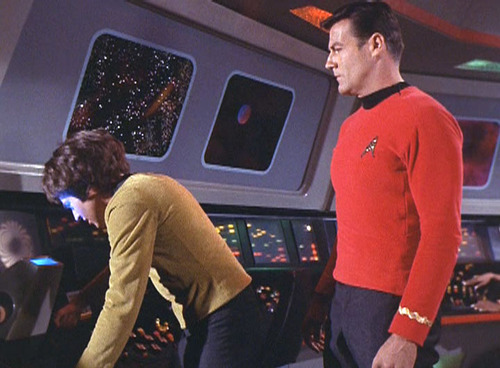16
Apocalypse World / Re: Sunken Sydney, a Hatchet City-style scenario.
« on: July 23, 2017, 12:24:06 AM »
This link appears to be broken, or disabled. Does anyone have a copy of this pdf they could send to me?
This section allows you to view all posts made by this member. Note that you can only see posts made in areas you currently have access to.
Is that how it's supposed to work in 2nd edition, or just the way you handle it at your table?
For example, would it be legit for you to negate the exchange of harm, and have something else happen?NO! You exchange harm THEN you roll. Seize By Force is pretty explicit on that point.
1. How strict are you about requiring fictional context for the move? Do you demand it to be described or justified fictionally, or is it the player's option to call on the move as an attempt to gain a mechanical advantage?Before a player picks up dice I've usually asked them "what do you do?" or "how do you do that?" and clarified enough that I know exactly what they're doing before we see the dice rolls, making sure to correct them or ask them about any misunderstanding they might have within the fiction. A lot of my players are not rules-focused, so I often find myself asking players who are in a position to help if they want to. Any time a move is directed AT a player, I ask them if they want to interfere. I always put what gets rolled into the players hands and only call for a roll if it's something that the fiction, not another player, has created.
2. If anyone misses their help/interfere roll, how does the MC make a move in response? We've got all this other stuff hanging over our heads - the other three rolls going on, getting back to the fictional action we're invested in, and so forth.If I can't think of something appropriate I might flip the move (e.g. help turns into interfere, or vice versa). Otherwise, I advance a threat countdown, usually something in the background (the water supply is running out in Lola's purifier) or not immediately noticeable (Snow's infection is getting worse). As a personal rule of thumb I follow the fiction, or I flip the move, or I advance a countdown. In that order.
It becomes very tempting to just skip it, and to say that the missed help/interfere "did nothing", moving on to the next roll, and playing out the scene. Is that the desired dynamic here, or should we be playing it differently?Not for me! Never! Rolls ALWAYS have consequences at my table. I want the players to both crave and fear rolling dice.
3. What's your preferred way to handle the timing of help/interfere: before the roll you're trying to affect, simultaneous with it, or afterwards (where we only roll if it's close enough that successful help/intereference could make a difference)?Case by case. If I remember to ask somebody before a roll was made then they can't help/interfere after the fact, if they insist then usually I let them but I spell how much more it's going to suck if they miss the roll (tell the consequences and ask).
I could go into a spiel about what I find less than optimal about PbtA, but I won't. At the end of the day, the big "problem" I see with and hear about PbtA is that the main mechanic relies on trusting your MC to know how to make Failing Forward work, to generate complications which are relevant and at least consistent with the situation if not necessarily balanced.
Which is to say that if you're climbing over a wall, and roll a 1, "you land on a bear" is technically a valid response from the MC. And without broader lists of potential complications for such rolls, and an explicit directive to the MC to make things shitty for the player characters, that's a hell of a lot of faith to put into the guy running the game, especially in a hobby where the idea of an antagonism between MC and players is still clinging on from it's modern originator. I know one person who I've played with that I would maybe trust to not kill all the players an hour into the first session, whether through malice or incompetence.
So I'm just wondering what people see about PbtA games, and especially AW, that makes them like it so much.

Yeah, I like that. Sort of a crossbreed of Hardholder and Operator, where the gigs are whole towns.
The rules even say "You can perform any enchantment, at any time you choose to do so." That's the stuff of fairy tales right there. On the other hand, if you don't have the right then you are performing unholy black magic and are a witch! The Court Wizard is "trembling before God" and so does not have the right to use unholy witchcraft. . .but he does ave the ability.
As you quoted, it does say "You can perform any enchantment, at any time you choose to do so," and gives details how. So, yeah, it looks like you might get burned at the stake for doing that when you ought not be!